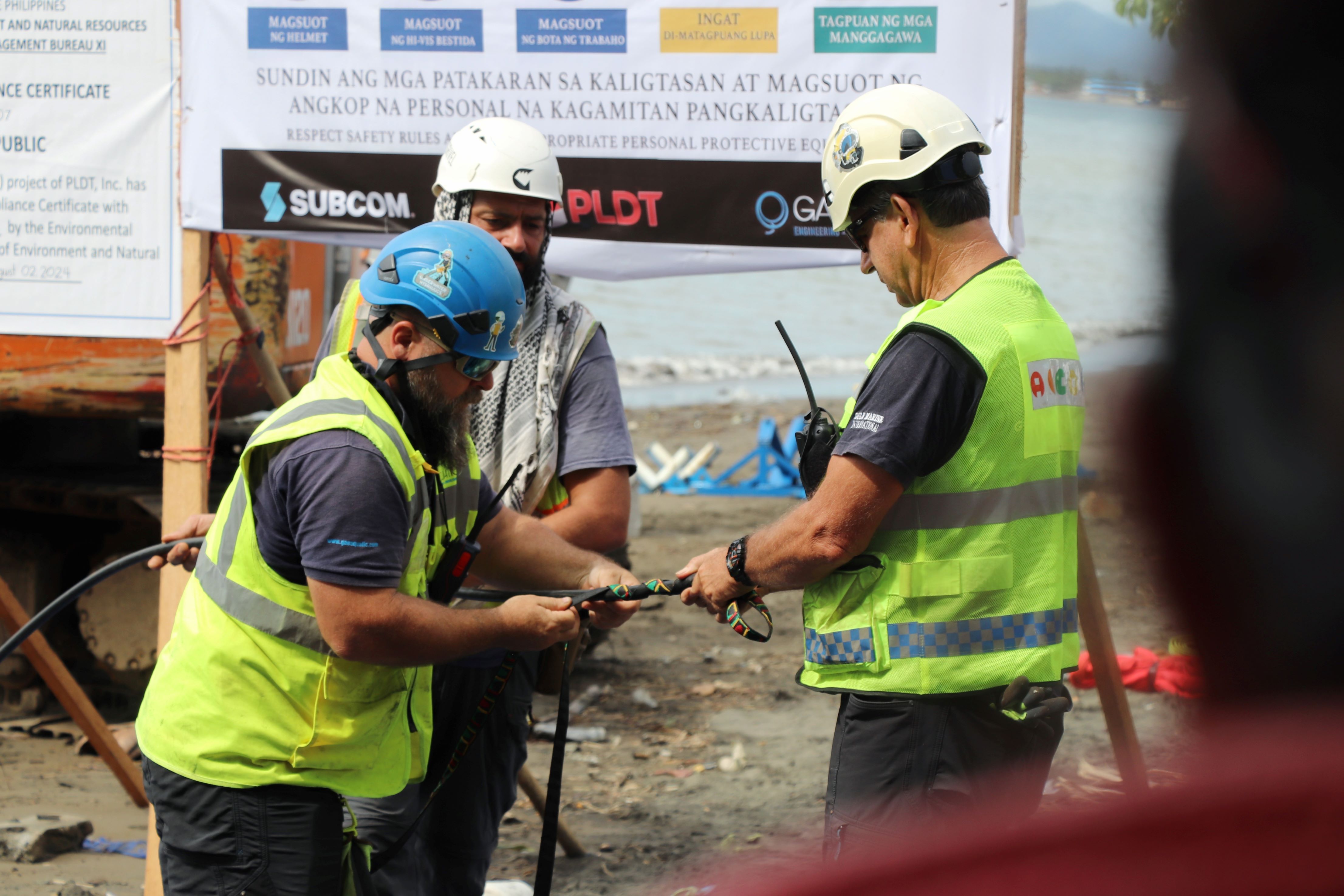
The Philippines' leading integrated telco PLDT Inc. (PLDT) has successfully completed the branches of the APRICOT cable system in Baler in Aurora and Digos in Davao. This bolsters the telco's capability to serve the country’s growing data traffic and further boosts the Philippines’ aspirations to be a major transit hub and potential destination for global hyperscalers expanding in the region.
Seen to augment PLDT's international capacity for data traffic, the 12,000-kilometer-long APRICOT cable system will be a state-of-the-art, high-capacity fiber-optic submarine cable system that will address the increasing telecommunications traffic capacity demands in the Asia Pacific region and US, with a system design capacity of more than 190Tbps.
A direct cable from Singapore to the Japan via the Pacific Ocean, the APRICOT cable system gives telecommunication companies alternate routes that do not traverse the usual West Philippine Sea waters.
The APRICOT cable system is also strategically routed to bypass the Luzon Strait and Bashi channel, a fault-prone area due to typhoons and earthquakes, and is reinforced by two Philippine landing points with two newly built cable landing stations—one in the North in Baler and one in the South in Davao.
The APRICOT cable system, poised to be an all-around low-latency submarine cable across the Asia Pacific region, connects Singapore to Japan with branches to the Philippines, Indonesia, Taiwan, and Guam, making it suited as an Intra-Asia Hub point for OTTs, and complements with other intra-Asia and transpacific submarine systems.
APRICOT will increase PLDT’s International Capacity by as much as 33% totaling to more than 140Tbps, further boosting the diversity and capacity of PLDT’s cable system portfolio.
"Our continued investment in our network, including our international submarine cable systems like APRICOT, are part of our enduring commitment to ensure the success of our partners, boost the economy by propelling the country's digitalization aspirations, and help position the Philippines as a strategic data center hub in Asia Pacific," said Jojo Gendrano, Senior Vice President and Head of Enterprise Business Group at PLDT and Smart. "Through initiatives like this, we continue to accelerate high-capacity data services, meeting the region’s growing demand for cloud, e-commerce, and content delivery. With these advancements, the Philippines is primed to support next-generation technologies like 5G, IoT, and AI, elevating digital experiences for enterprises and consumers alike," Gendrano added.
"International submarine cable systems are critical network infrastructure that are essential in supporting the exponential growth of data traffic brought about by the increasingly digital lifestyles of Filipinos," said Butch Jimenez, Chief Operating Officer at PLDT. “Aside from supporting international data traffic, the APRICOT cable system’s route also provides resiliency to PLDT's domestic network between Luzon and Mindanao,” Jimenez added.
PLDT continues to invest in its fixed and wireless networks, ICT, data centers, and submarine cables, to drive revenue growth and support the continuing rise in network traffic. These investments are also in keeping with the Group's commitment to close the digital divide and bring the benefits of the internet closer to more Filipinos across the country, contributing to the United Nations Sustainable Development Goals (UNSDG), particularly on SDG 9 – Industry, Innovation, and Infrastructure. For more information, visit https://pldtenterprise.com